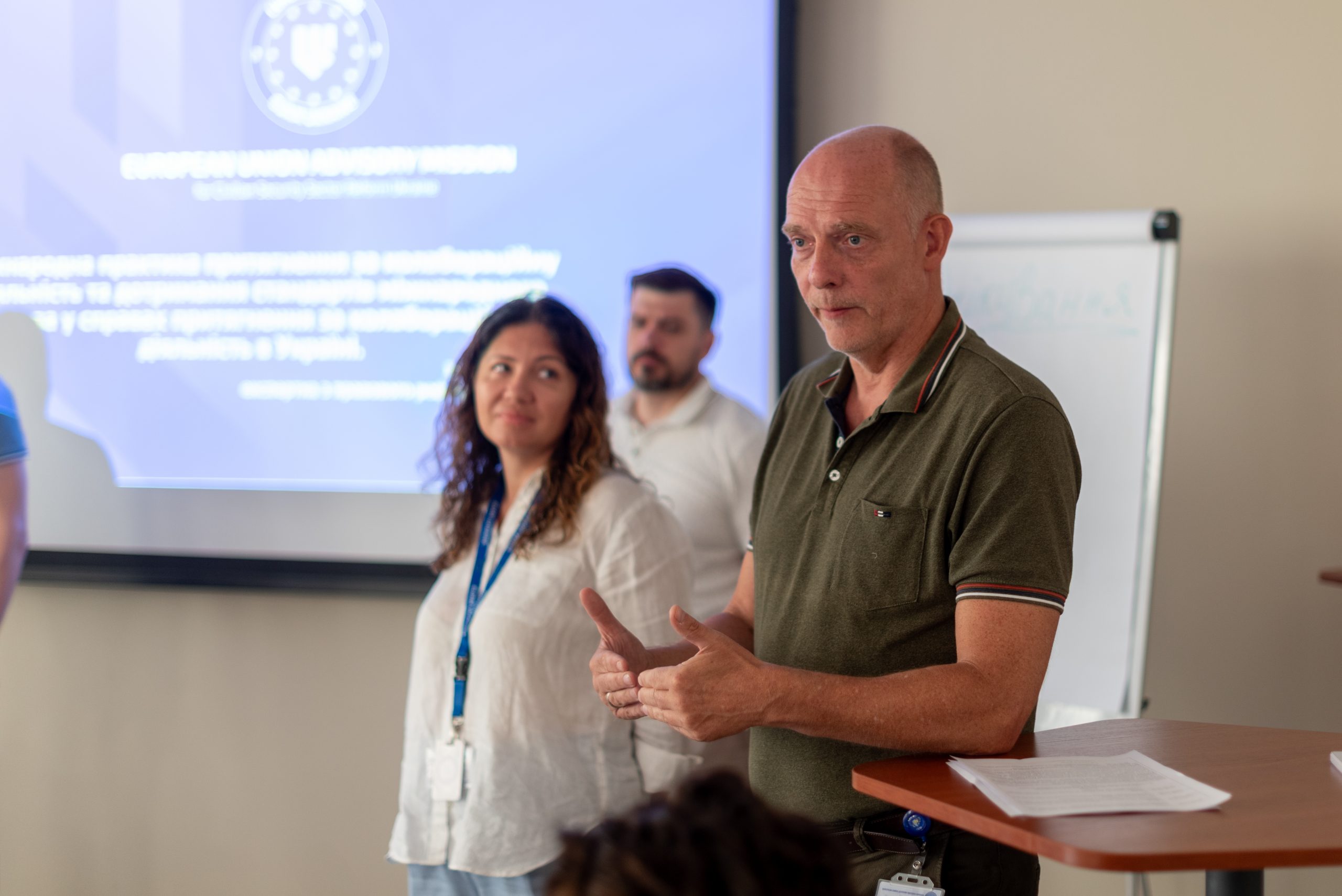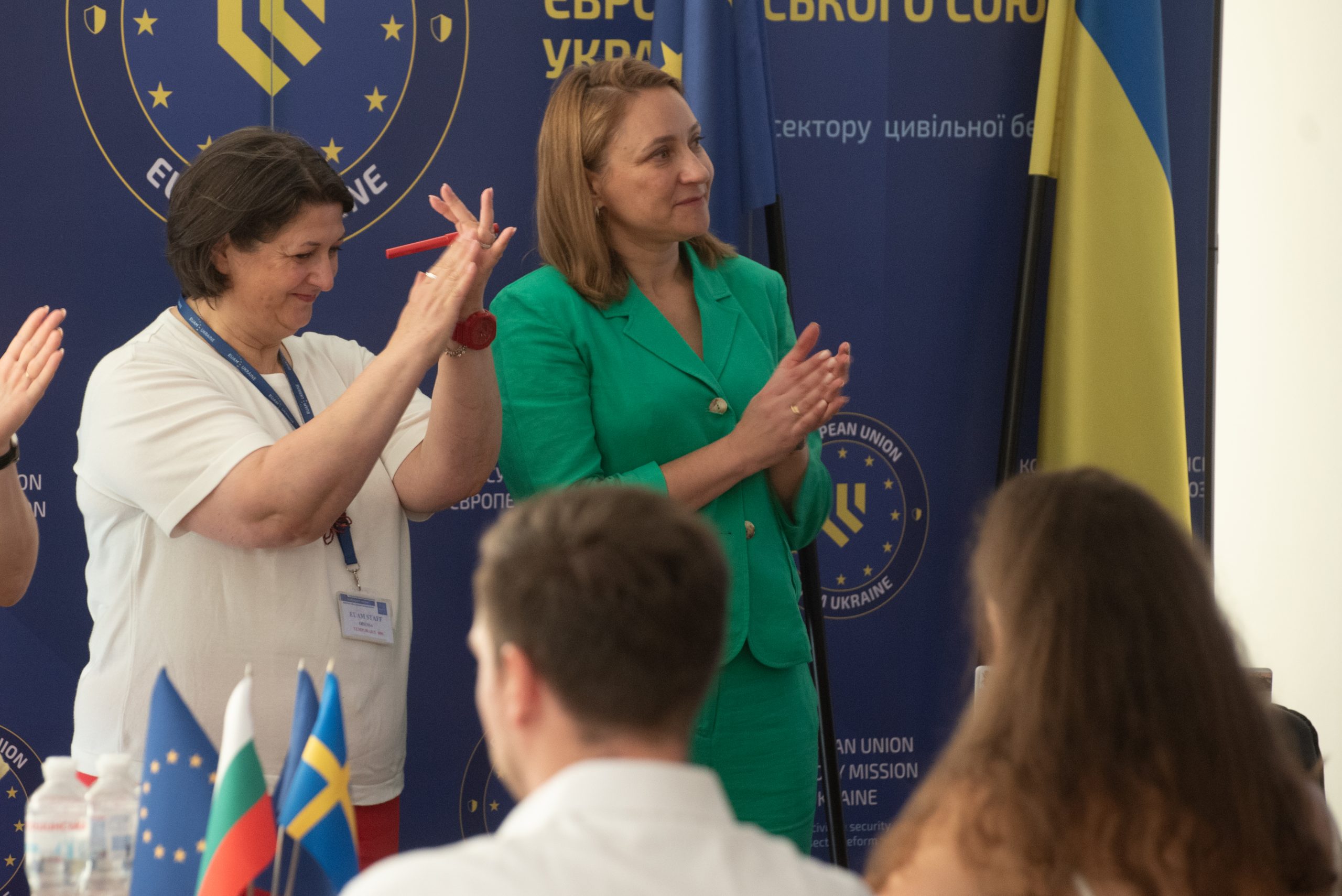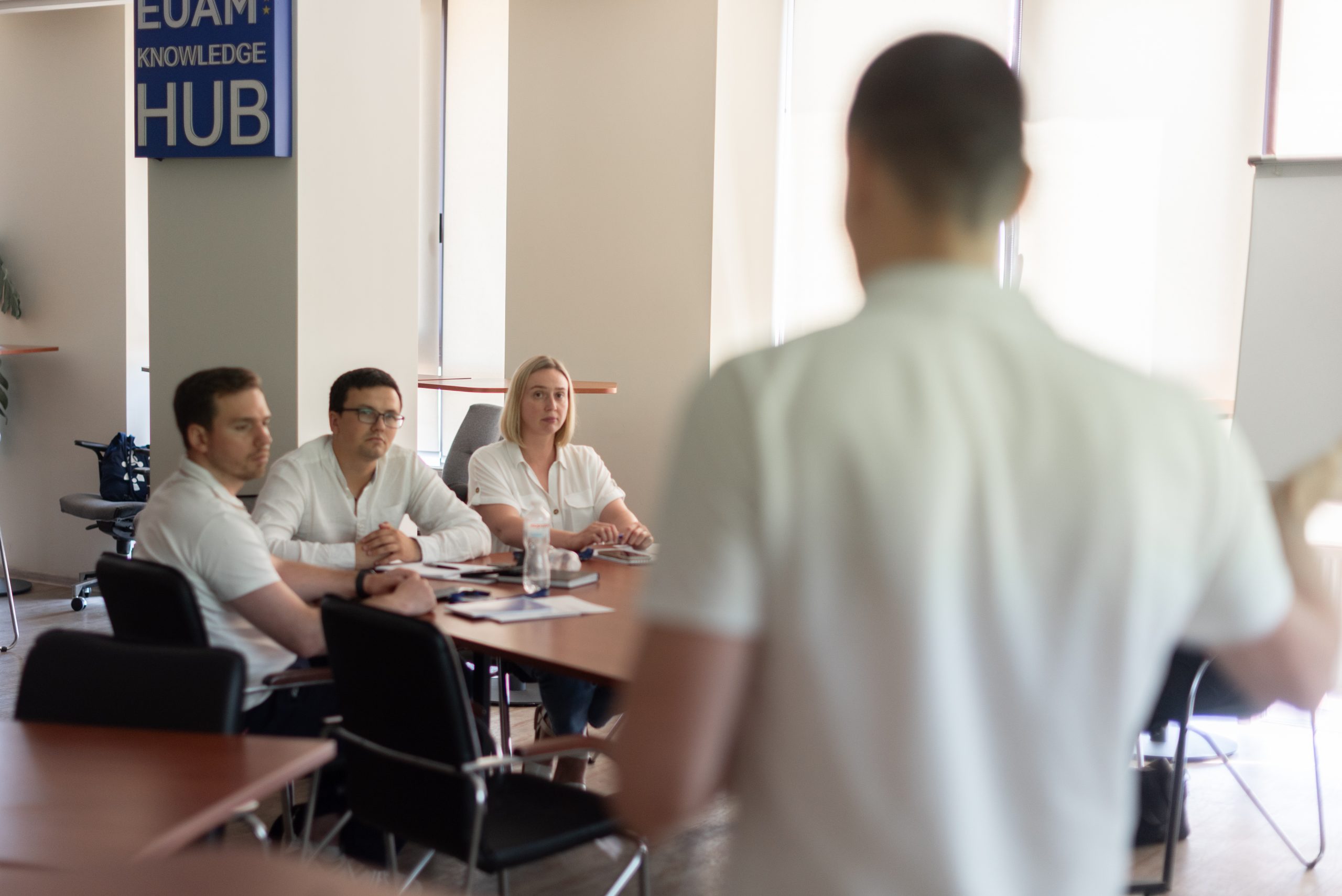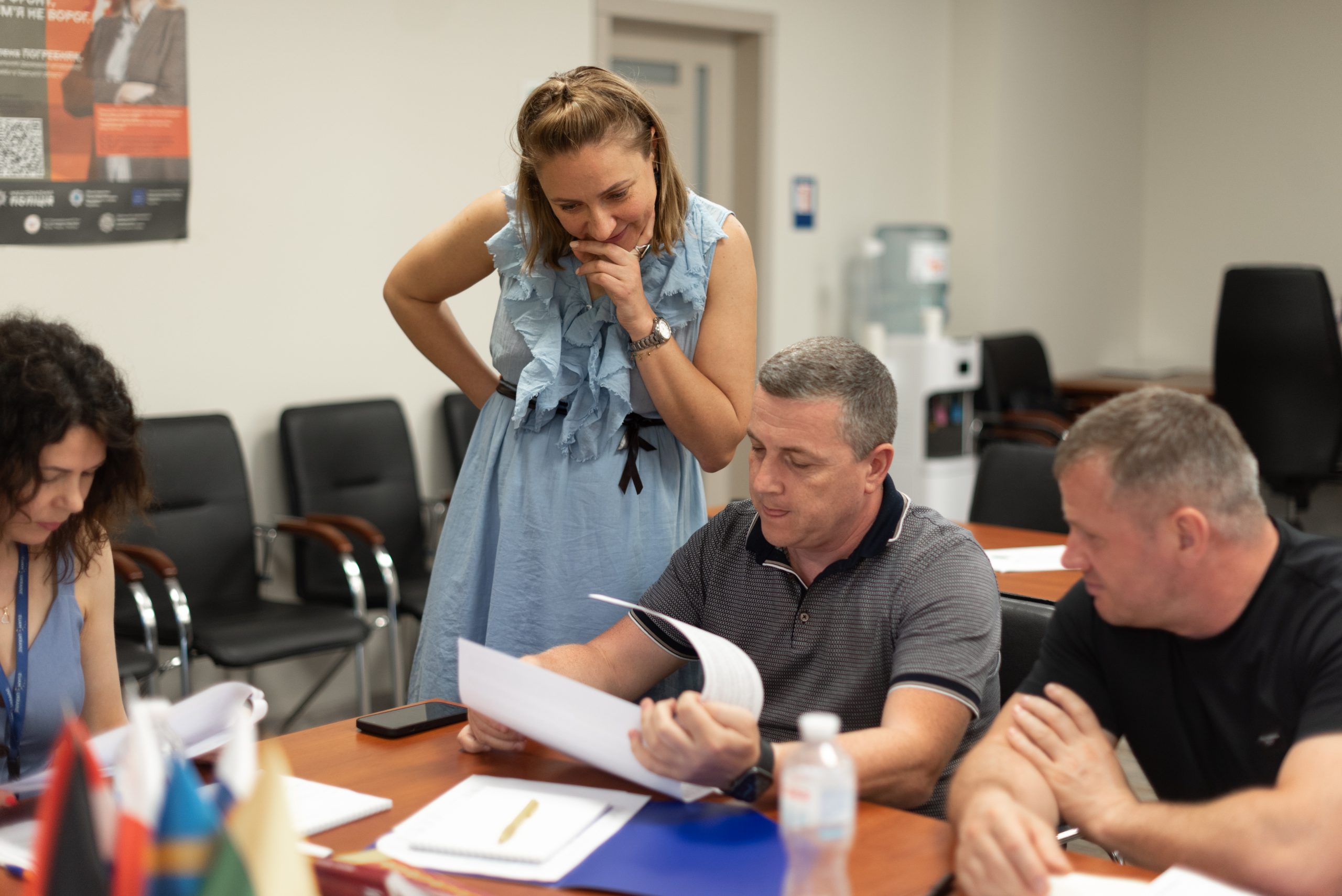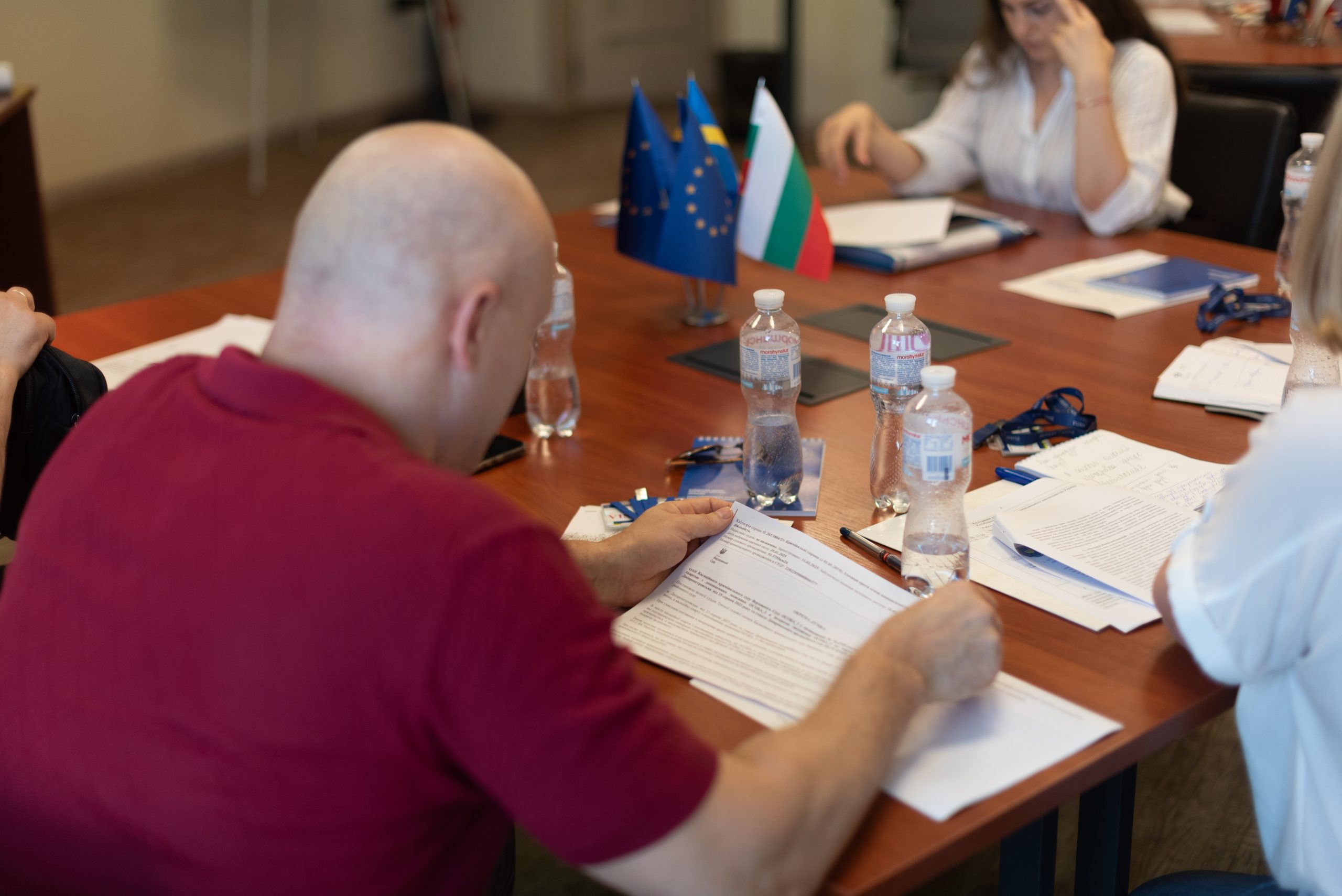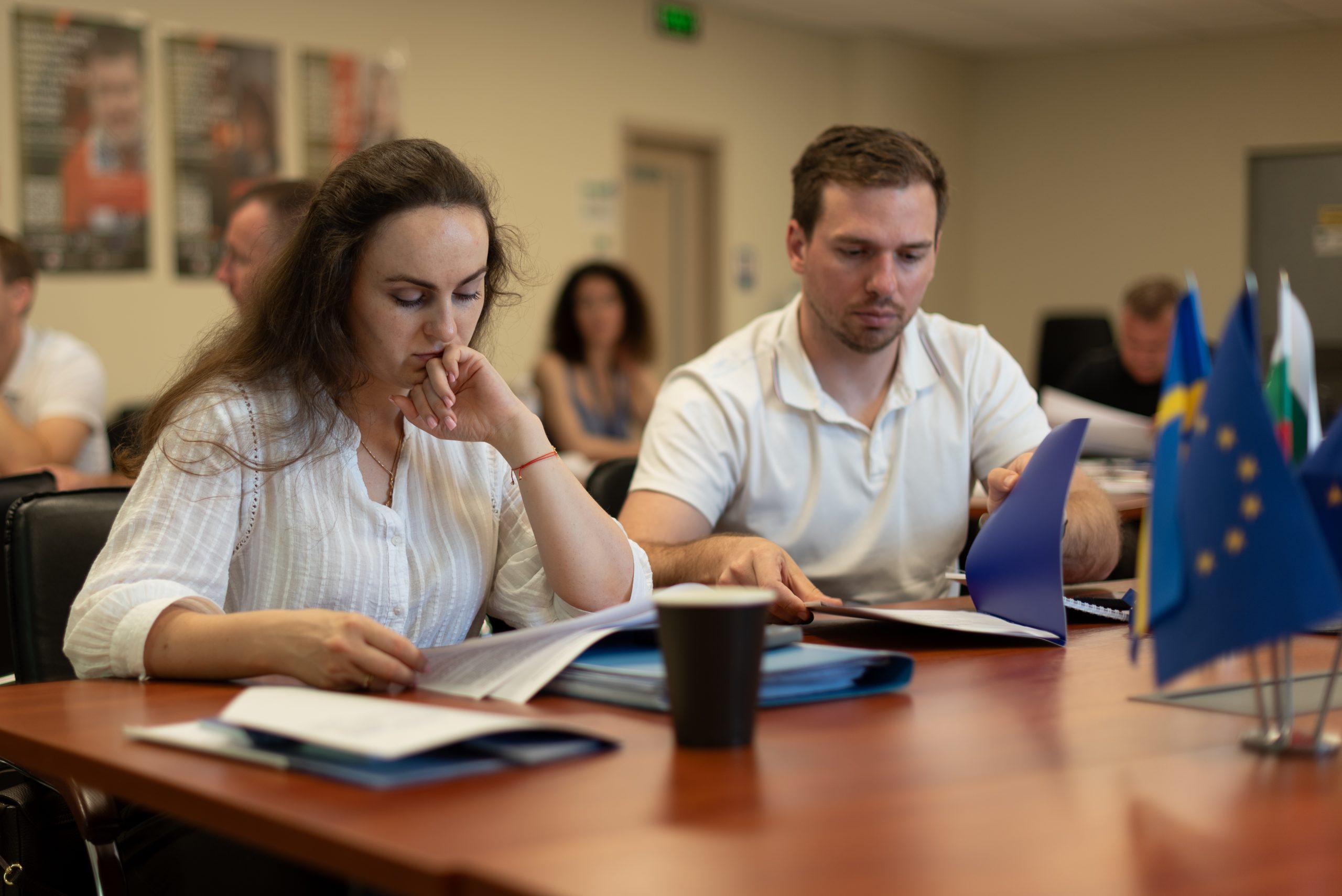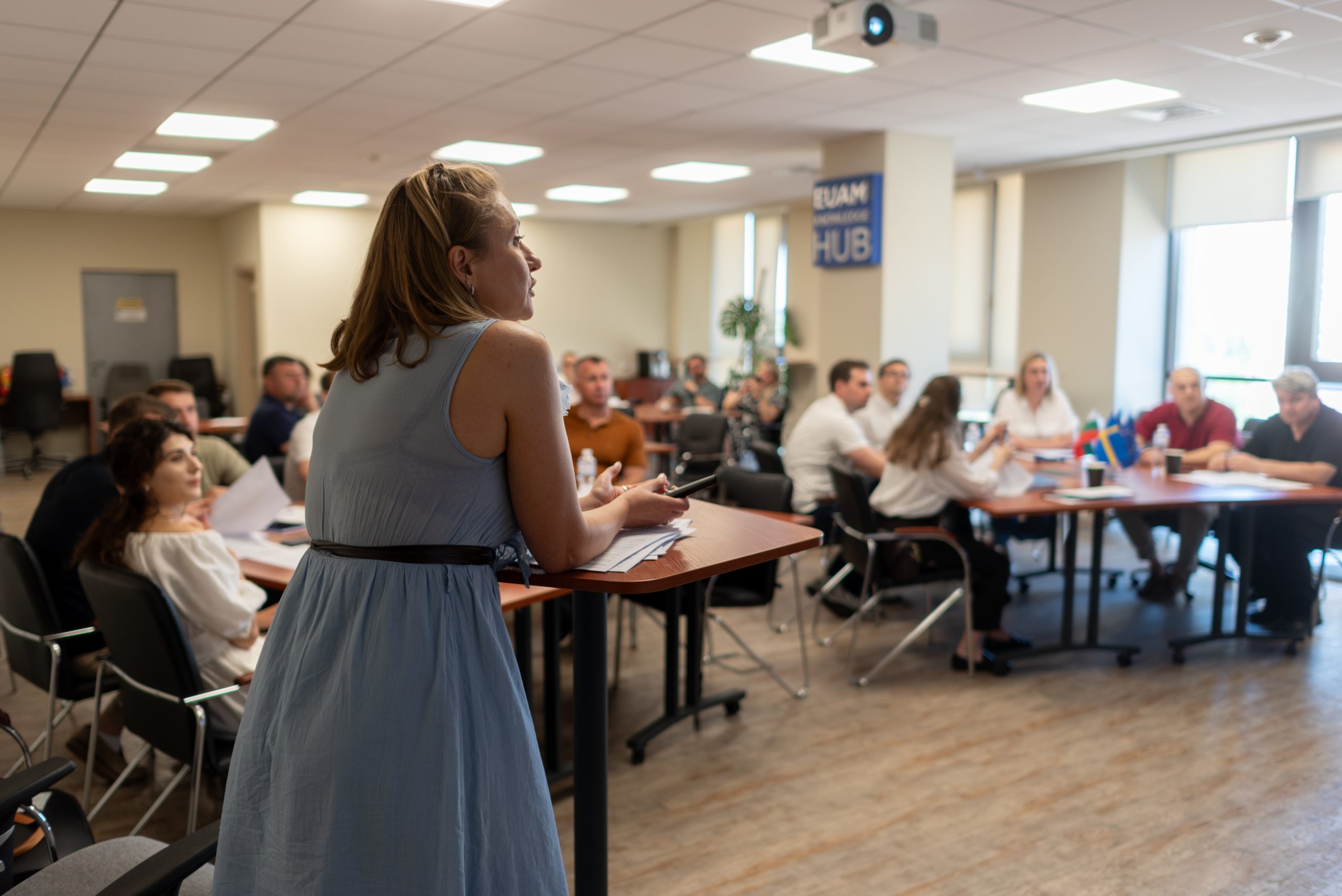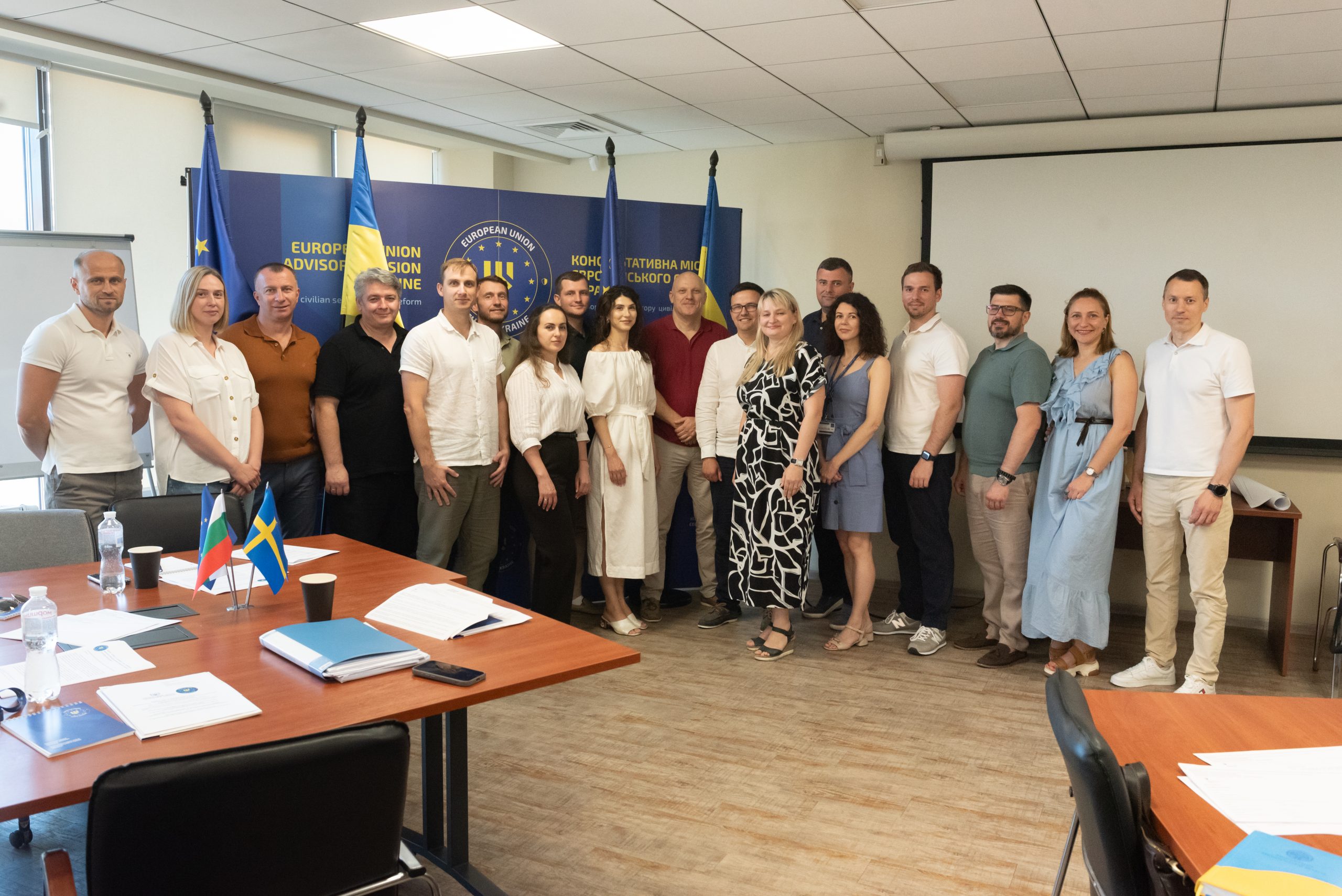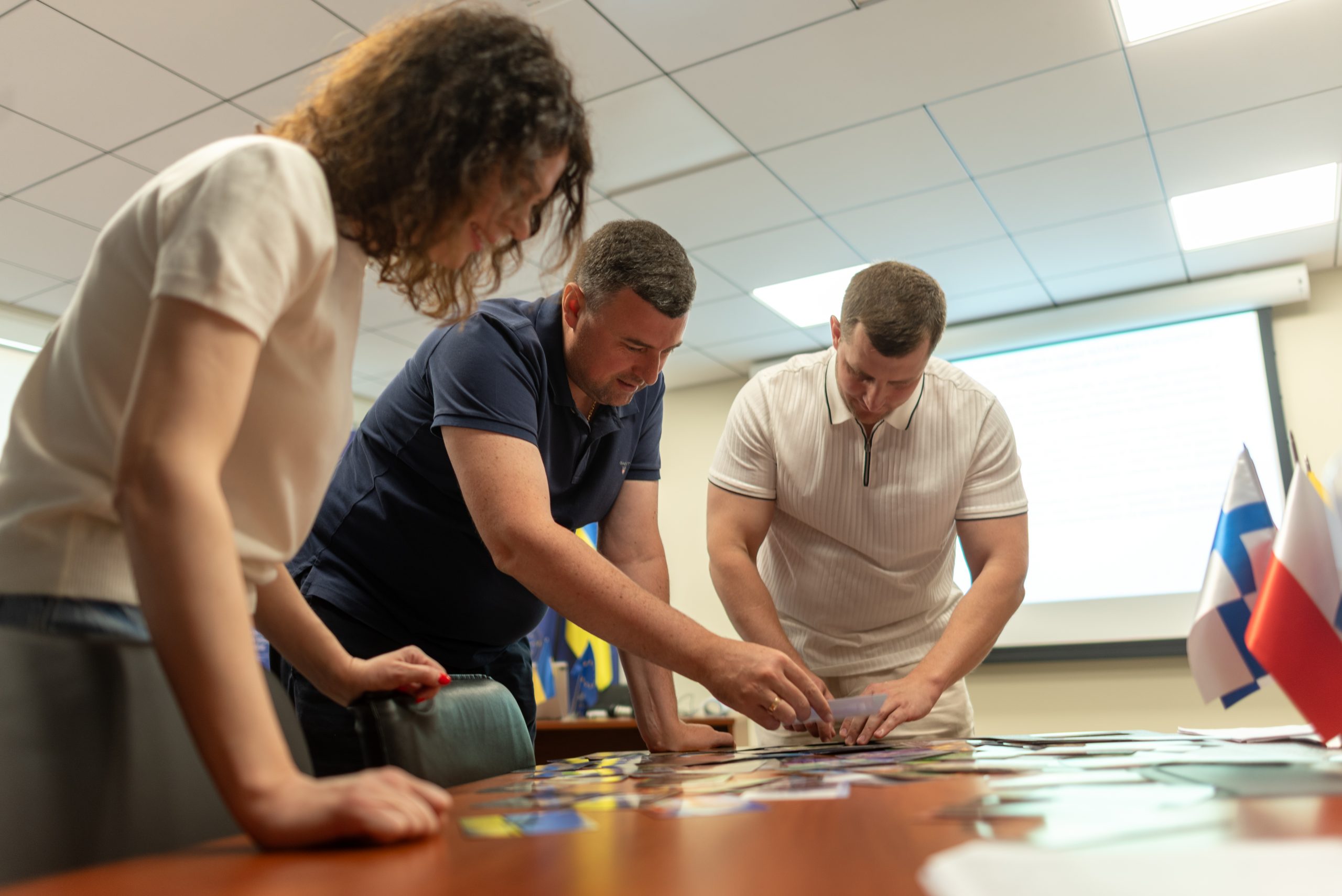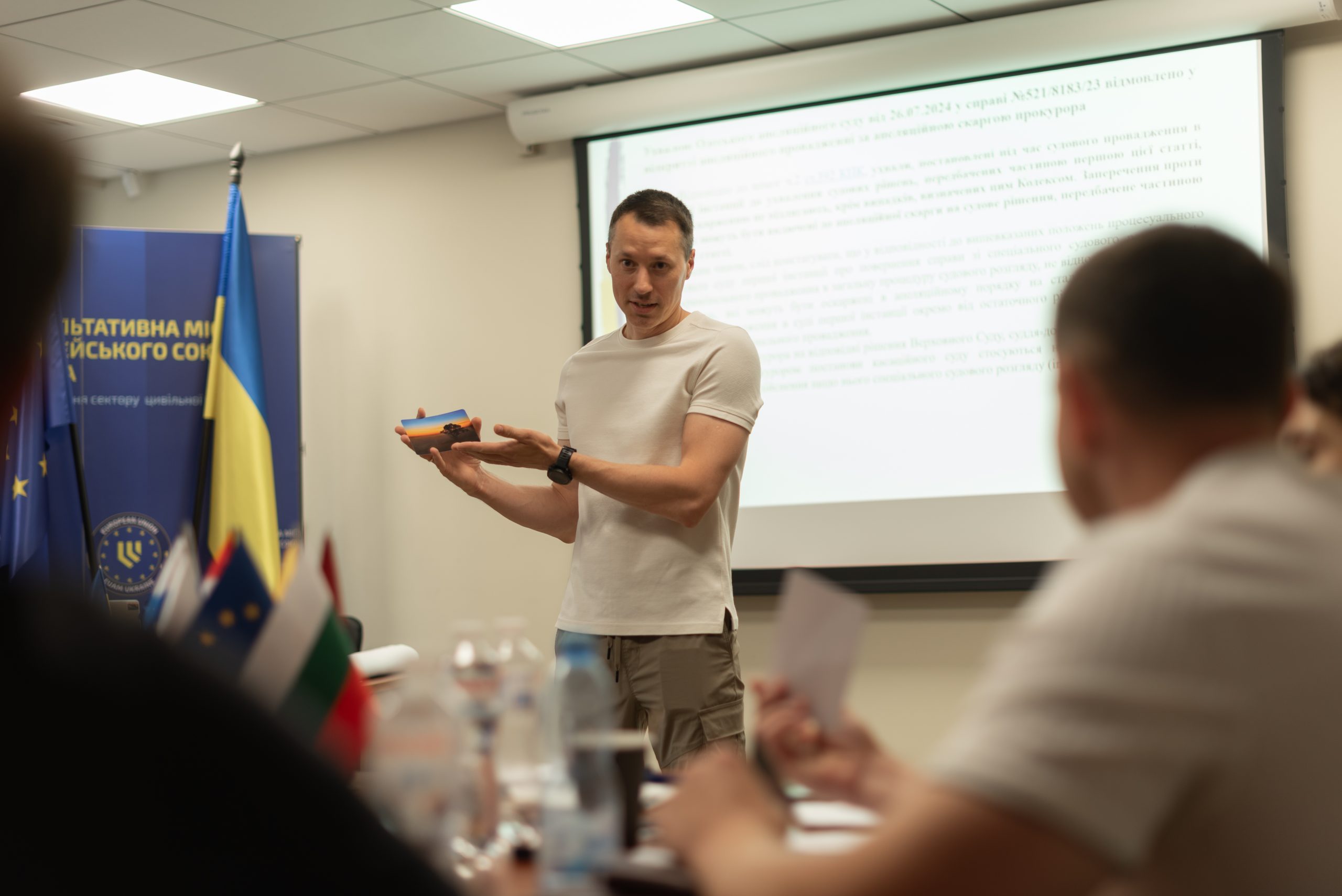Prosecutors in the South of Ukraine Strengthen Skills to Tackle Crimes Against National Security
July 14, 2025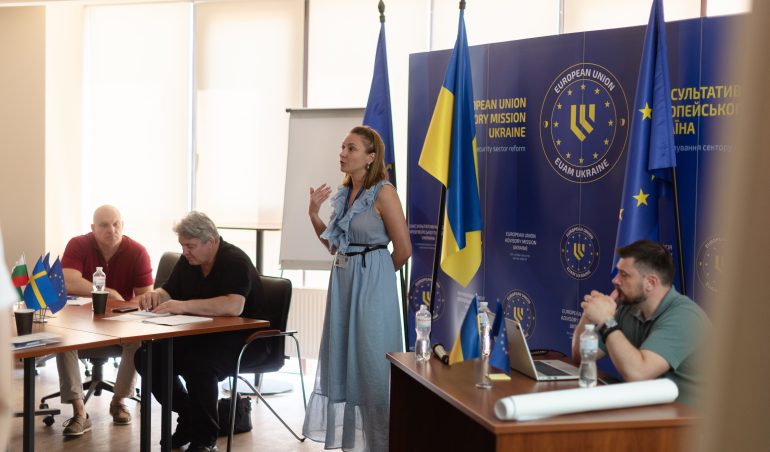
On 7-9 July EUAM Ukraine, together with the Prosecutor’s Training Centre of Ukraine (PTCU) and the National School of Judges (NSJ), delivered a specialized training for prosecutors on Procedural Guidance and Support of the Public Prosecution in Criminal Proceedings Against the Foundation of National Security at EUAM’s Field Office in Odesa.
The training held at the request of the Office of the Prosecutor General (OPG), aimed to address the pressing need for practical guidance on prosecuting crimes related to collaborationism and other crimes against national security in compliance with international law. Prosecutors from the heavily impacted regions of Odesa, Mykolaiv, and Kherson, as well as representatives from the State Bureau of Investigation, gathered to enhance their expertise amid a challenging wartime context.
The training was delivered to 17 prosecutors within EUAM’s “Criminal Justice Reform” project, offering four focused sessions: compliance with the Law of Occupation and civilian rights in occupied territories; human rights-compliant investigation and fair trial rights; the prosecution’s role in transitional justice in the context of Russia’s aggression; and international standards for conducting criminal proceedings in absentia.
“Since the full-scale invasion judicial practice is constantly changing. The training allowed us to discuss different practices across regions and learn from European experience, which is crucial for our daily work,” shared Oleh Bondar, Head of the National Security Oversight Unit at the Odesa Regional Prosecutor’s Office.
“These are relatively new crimes for Ukraine. We need a unified approach to qualifying and proving these cases while balancing the rights of civilians in occupied territories,” noted Oleksandr Zhyla, Deputy Head of the Directorate on the oversight of the security agencies cases of the Office of the Prosecutor General. “The training clarified the need for prosecutors to know the categories of offences, gather sufficient evidence to support charges while respecting human rights, and assess whether prosecution is appropriate, especially under occupation.”
The event featured two speakers who have practical experience exploring the challenges of justice in post-conflict contexts. A judge of the Supreme Court of Ukraine Mykola Mazur discussed how theoretical frameworks are applied in court, particularly in proceedings in absentia. An Italian prosecutor Annita Sorti complemented this with lessons from Italy’s post-war experience, highlighting ways to balance accountability with reintegration.
“We examined the topic through the lens of international law, international human rights law, and international judicial practice, including what the Geneva Conventions say on these matters and how we can apply this knowledge to real-life cases. It was especially valuable to hear the perspective of a judge from the Supreme Court of Ukraine on how to practically apply these theoretical insights in our daily work.” said Olha Komenko, a prosecutor from Odesa.
EUAM’s Legal Reform Officer, Ivanna Ilchenko, highlighted the practical application of international humanitarian law and human rights frameworks within the training, noting that these standards are critical for fair prosecutions during wartime.
“We discussed how civilians under occupation have the right to live and work without automatically being labelled collaborators, as required by the Geneva Conventions and international human rights law,” explained Ivanna Ilchenko. “The training provided prosecutors with tools to distinguish between those who actively supported the occupation regime and those who were simply trying to survive.”
The practical casework and discussions enabled prosecutors to explore real-life challenges, such as prosecuting informants, assessing cases of collaboration forced by the occupying authorities, and understanding the proportionality principle within the transitional justice processes.
This training, the second of its kind following an initial round in Kyiv, marked a significant step in building the capacity of Ukrainian prosecutors to ensure accountability while upholding human rights and due process. With ongoing plans to continue and expand these trainings, EUAM remains committed to supporting Ukraine’s justice system in addressing the complex consequences of Russia’s aggression while laying the groundwork for fair, effective, and rights-respecting justice.


